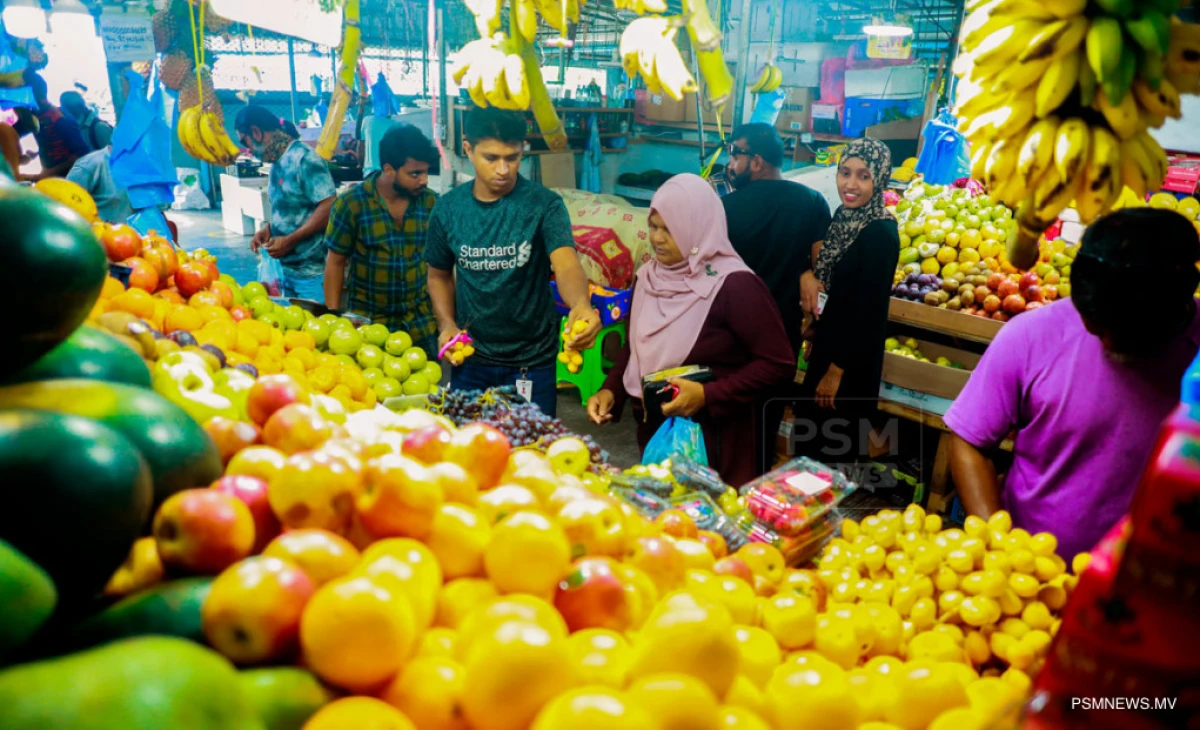Wed, 17 Dec 2025
|DHIVEHI
Maldives moves from vulnerability to resilience on food security
13 Sep 2025
|

Local farmer's market -- Photo: PSM News
The Maldives remains one of the most economically fragile countries in the region, acutely vulnerable to external shocks such as wars, pandemics, and global supply chain disruptions. The COVID-19 pandemic, coupled with the broader economic crisis it triggered, highlighted how quickly such events can destabilise the economy and generate wide-ranging consequences.
Among the most urgent of these is food security. Rising prices and periodic shortages have left many Maldivians exposed to risk, a concern repeatedly raised by successive governments. During the pandemic, Members of Parliament even debated measures such as planting breadfruit trees on outer islands. Yet, comprehensive and environmentally sustainable policies tailored to the Maldives’ unique challenges have remained difficult to formulate. Unlike past administrations, however, the current Government has placed food security at the forefront of its agenda, pursuing a broader set of initiatives and demonstrating a stronger commitment to long-term, practical solutions than any of its predecessors.
Singapore’s experience offers valuable lessons. Like the Maldives, it imports the vast majority of its food and faces severe land constraints that prevent reliance on large-scale domestic agriculture. Despite these limitations, Singapore has built a robust system to safeguard its food supply. Although about 90 percent of its food is imported, resilience has been ensured through diversification, regulation, and innovation. A central feature of this approach is the “Three Food Baskets” strategy, designed to minimise dependence on any single supplier. For example, while eggs once came almost exclusively from Malaysia, they are now sourced from countries including Thailand, Poland, and Ukraine. By importing from 180 countries, Singapore has reduced its vulnerability to external shocks. In 2019, it also established the Singapore Food Agency, a statutory body tasked with ensuring the availability, safety, and security of supplies. Storage is another pillar of the system: essential items such as rice and chicken are kept in long-term facilities to cushion shortages and stabilise prices during crises. At the same time, Singapore has invested in increasing local production through its “Thirty by Thirty” plan, which seeks to produce 30 percent of basic food needs domestically by 2030.
In the Maldives, President Dr Mohamed Muizzu has similarly placed food security at the centre of his policy agenda. He has emphasised the need for environmentally sustainable solutions that reflect both the natural limitations of island geography and the broader economic context. The stated objective is to achieve long-term, feasible food security rather than short-term fixes.
One of the Government’s flagship initiatives is the expansion of domestic agriculture. A dedicated company has been created to develop agriculture as an industrial sector, while new projects—both large-scale partnerships, such as one with a Chinese company, and smaller ventures on islands—are underway. The President has underlined that priority will be given to local production of essential vegetables and fruits. Acknowledging that self-sufficiency cannot be achieved quickly, the Administration nevertheless regards this as a long-term commitment.
Another measure targets the import and storage of staple commodities. Historically, the State Trading Organisation (STO) has managed rice, sugar, and flour reserves. The current Administration has expanded this mandate, instructing STO to import and store a wider range of goods, including ten types of fruits, ten types of vegetables, lentils, eggs, and potatoes. Officials argue that this policy will protect consumers from international price fluctuations and reduce the burden on private importers.
In addition, the Government has adopted strategies inspired by Gulf states such as Qatar and the United Arab Emirates, where food security has been bolstered through overseas production. This includes investing in large agricultural trading companies to guarantee reliable access, or directly supporting government-backed ventures abroad. Both methods aim to secure affordable supplies of essential items for Maldivians.
Officials stress that no single measure can address food insecurity in isolation. Instead, the Administration is pursuing a multi-pronged approach that combines domestic cultivation, strategic imports, overseas investments, and robust storage systems. The overarching goal is to ensure sustainable, reliable, and affordable access to food for the Maldivian population—an ambition that remains both urgent and long-term in scope.


Popular News







